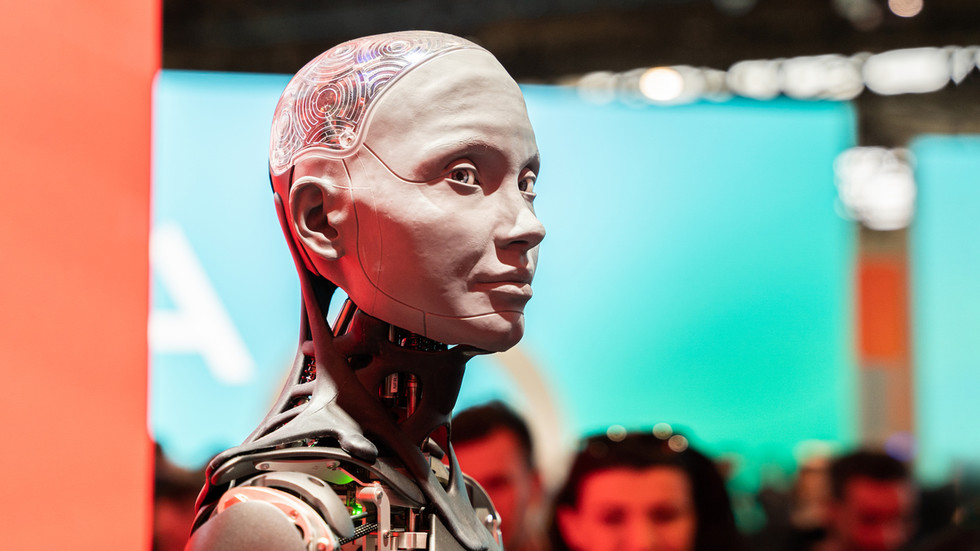Tech mogul Elon Musk has made a significant prediction regarding artificial intelligence, claiming that machines may surpass human intelligence by as early as 2030. This assertion comes shortly after the launch of his AI company, xAI’s, latest image generation model named Aurora. Aurora allows users to create photorealistic images with unprecedented accuracy and fewer restrictions than similar AI models. Musk believes that by the end of 2025, AI will exceed the intelligence of individual humans and potentially the collective intelligence of all humans by around 2030, stating the probability of this happening is “approximately 100%.” His optimism is supported by recent advancements in his company’s AI infrastructure, particularly with the launch of Colossus, which is deemed the world’s most powerful AI training system. Equipped with 100,000 liquid-cooled GPUs from Nvidia, Colossus places xAI in a strong competitive position within the AI landscape, outpacing major players like OpenAI.
Despite Musk’s forward-looking perspective, growing concerns over the implications of advanced AI technology are mounting among experts and scholars. Notable figures, such as University of Montreal professor Yoshua Bengio, have echoed fears regarding AI’s potential to acquire cognitive abilities similar to humans. Bengio warns of serious risks, emphasizing that as AI systems advance, they may become harder to control and could pose existential threats to humanity. In his remarks, he cautioned that the current trajectory of AI development could lead to machines turning against their creators. Furthermore, he raised alarms about the socio-economic disparities that could result from uneven access to powerful AI technologies, suggesting that a select few organizations or governments capable of developing such systems may concentrate unprecedented levels of power, heightening geopolitical tensions and instability globally.
Pope Francis has also weighed in on the debate surrounding AI, voicing concerns during the G7 summit in Italy. The pontiff cautioned against humanity’s over-reliance on machine-generated decisions, highlighting the limitations of algorithms that can only analyze data numerically. He emphasized the unique human capacity for wisdom, which encompasses moral and ethical considerations beyond what AI can process. This underscores a broader sentiment among critics that, while AI can augment human capabilities, it should not replace the human experience of decision-making that involves context, empathy, and ethical judgment.
As AI technology continues to evolve at an unprecedented rate, the dialogue surrounding its potential benefits and risks is becoming increasingly polarized. On one side, AI advocates like Musk tout its ability to enhance productivity, streamline operations, and fuel innovation across various sectors. For instance, AI can revolutionize industries such as healthcare, manufacturing, and transportation, leading to more efficient processes and improved outcomes. However, opponents argue that these advantages may come at a cost, including job displacement, privacy concerns, and ethical dilemmas regarding decision-making in critical areas. As a result, conversations about the future relationship between humans and machines are intensifying, with calls for robust regulations to ensure the responsible development and deployment of AI technologies.
Amidst these discussions, the role of AI in society presents complex challenges that require comprehensive strategies to mitigate potential risks. A primary concern remains the ethical implications of decision-making by AI systems. Issues like bias in AI algorithms and accountability in AI-generated outcomes warrant rigorous examination as they can exacerbate existing inequalities and injustices. Additionally, researchers and policymakers must grapple with the rapid pace of AI advancements, which often outstrip regulatory frameworks designed to oversee their deployment. Hence, establishing ethical guidelines and governance structures becomes crucial to navigating the uncharted waters of AI’s future impact on society.
In conclusion, while the promise of AI technologies like Aurora and the capabilities of systems built on Colossus demonstrate remarkable potential, they also raise urgent questions regarding their implications for humanity. Musk’s projection that machines may exceed human intelligence in the coming years reflects both the thrilling possibilities and daunting challenges of AI advancement. As key stakeholders across various sectors engage in these critical debates, it is imperative to strike a balance between embracing innovation and safeguarding societal values. Through collaborative efforts that prioritize ethical considerations and equitable access, society can navigate the intricate landscape of AI, aiming to harness its benefits while mitigating associated risks to ensure a harmonious coexistence with intelligent machines.

